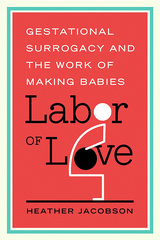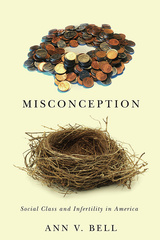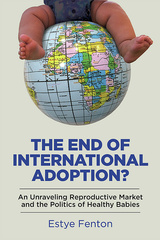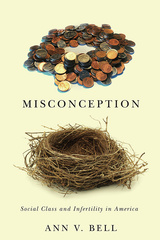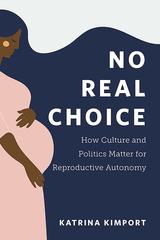204 pages, 5 1/2 x 8 1/2
6 bw, 4 tables
Paperback
Release Date:14 Apr 2023
ISBN:9781978808676
Hardcover
Release Date:14 Apr 2023
ISBN:9781978808683
Undoing Motherhood
Collaborative Reproduction and the Deinstitutionalization of U.S. Maternity
SERIES:
Families in Focus
Rutgers University Press
In 1978 the world’s first “test-tube baby” was born from in vitro fertilization (IVF), effectively ushering in a paradigm shift for infertility treatment that relied on partially disembodied human reproduction. Beyond IVF, the ability to extract, fertilize, and store reproductive cells outside of the human body has created new opportunities for family building, but also prompted new conflicts about rights to and control over reproductive cells. In collaborative forms of reproduction that build on IVF technologies, such as egg and embryo donation and gestational surrogacy, multiple women may variously contribute to conception, gestation/birth, and the legal and social responsibilities for rearing a child, creating intentionally fragmented maternities. Undoing Motherhood examines the implications of such fragmented maternities in the post-IVF reproductive era for generating maternity uncertainty—an increasing cultural ambiguity about what does and should constitute maternity. Undoing Motherhood explores this uncertainty in the social worlds of reproductive medicine and law.
Undoing Motherhood is fascinating and unique; there is really no other published work that empirically examines the issues, debates, and contestations about maternity from the meso-level/organizational level that shape definitions about maternity and ensuing contestations when assisted reproductive technologies are involved.
Undoing Motherhood beautifully weaves together the worlds of reproductive medicine and the law to explore how technology has complicated the meaning of motherhood. The book is a compelling story of how new reproductive technologies have profoundly affected our conceptions of parenthood.’
KATHERINE M. JOHNSON is an associate professor of sociology and director of gender and sexuality studies at Tulane University. Her research focuses on the sociology of reproduction, and explores themes such as stratified reproduction, postmodern family building, motherhood, and medical and technological interventions into reproduction. Through this work, she has examined a range of reproductive topics including infertility, collaborative reproduction, abortion, childbirth, and breastfeeding. More recently she has also started working on issues of campus sexual violence and the transformative possibilities of feminist pedagogy to create healthier and safer campus cultures. Her work has appeared in both academic and practitioner-oriented journals.
1. A New Maternity Uncertainty?
2. Conceiving Motherhood and the Repronormative Family
3. Losing My Genetics: Paternal versus Maternal Concerns
4. Contingent Maternities? Maternal Claims Making in Collaborative Reproduction
5. Designating Maternity: Contested Motherhood and the Courts
6. Adopting or Resisting New Maternities?
7. Concluding Thoughts: Maternity Somewhere in Between
Acknowledgments
Notes
References
Index
2. Conceiving Motherhood and the Repronormative Family
3. Losing My Genetics: Paternal versus Maternal Concerns
4. Contingent Maternities? Maternal Claims Making in Collaborative Reproduction
5. Designating Maternity: Contested Motherhood and the Courts
6. Adopting or Resisting New Maternities?
7. Concluding Thoughts: Maternity Somewhere in Between
Acknowledgments
Notes
References
Index



